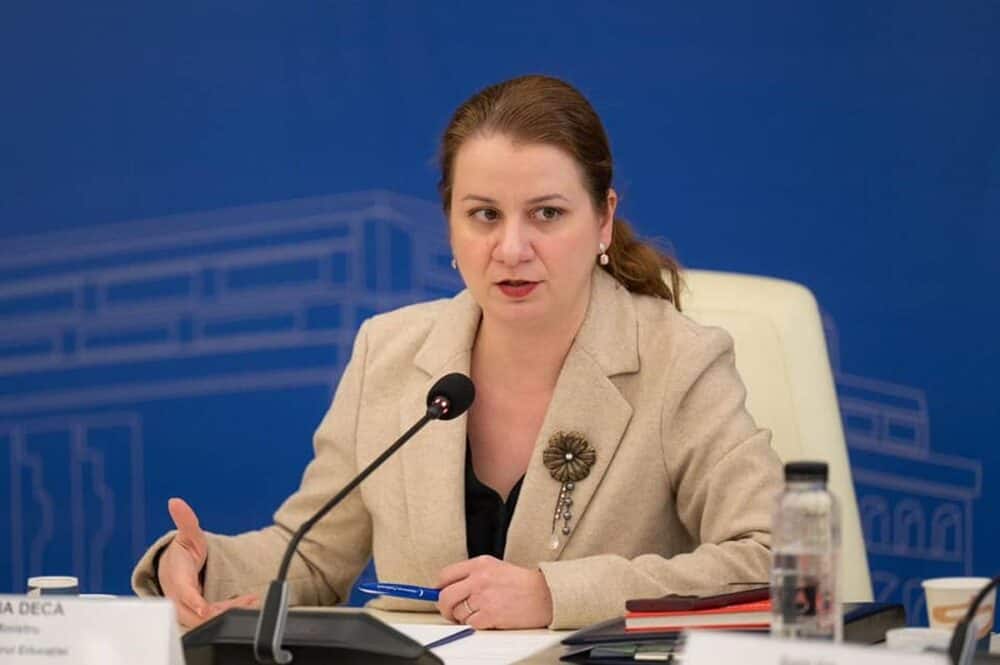The issues of the syllabus of the ”Jewish History. Holocaust”. History teachers who will be teaching are advised, in the syllabus published in the Official Monitor, to teach students about the Legionary leaders using sources that contain „different views” about their actions, and about the war criminals to tell the children that they were convicted for „collective guilt”.
The pretext of „collective guilt” and the fact that the trials took place in the early years of communism are arguments used by those who try to exonerate the memory of several war criminals.
Read also: DATA | How much money Romania spent on Ukrainian refugees’ health. Romanians’ reactions
The most recent is the case of General Nicolae Macici, convicted of mass murder in Odessa in 1941. In 2022, the High Court of Cassation and Justice rejected his son’s application for rehabilitation.
Over the years, applications for rehabilitation have been submitted for Ion Antonescu, Gheorghe Alexianu, Mircea Vulcănescu, Radu Gyr.
In the case of „collective guilt”, in fact, the trials examined individual culpability.
The issues in the syllabus of the subject ”Jewish History. Holocaust”
In the Order of the Minister of Education approving the curriculum for the subject „Jewish History. The Holocaust” – grade 11th/12th, in the chapter „Contents”, it is stated how some of the topics should be approached.
Thus, „as regards the content «Anti-Semitic violence and rhetoric in interwar Romania: the National Christian Defence League (LANC), the Legionary Movement and the National Christian Party», it is advisable to use primary historical sources, but also the historiography of these political parties and their leaders, their doctrines and actions during the interwar period.
It is advisable to present the Legionary movement in its scope and evolution, involving the activity of the Iron Guard, created in 1930 as a fascist organization in Romania, which operated from 1927 to 1941 under the names «Legion of Archangel Michael», «Iron Guard”» and «All for the Country Party».
It is recommended that the historical sources and images used should not be subject to Government Emergency Ordinance No 31/2002 (…), political leaders such as A.C. Cuza, Corneliu Zelea Codreanu, Octavian Goga or the sociologist and philosopher Mircea Vulcănescu should be presented from several perspectives, using at least three to four historical sources containing different points of view on the actions and ideas they promoted in Romanian society (…)”, reads the programme published in the Official Monitor.
Recall that A.C. Cuza, university professor and extremist politician, mentor of Corneliu Zelea Codreanu, was one of the theorists of Romanian anti-Semitism – claiming in his works that Jews are the people of Satan, that they are part of an inferior race, that they are half breed, militating for the „elimination of the Jews from the bossom of the Romanian people”, according to the paper „The Cultural Elite and the Interwar Anti-Semitic Discourse”, written by Alexandru Florian and Ana Bărbulescu, and published in 2022, by Polirom.
What the Ministry of Education wants highlighted
A.C. Cuza was also one of the founders of the League of National Christian Defence (LANC), from which the Legion of the Archangel Michael (Legionary Movement) would be derived.
Octavian Goga, poet and extremist politician, was Prime Minister of Romania, the first official to support an alliance with Nazi Germany.
And a decree-law he issued in 1937 left more than 200,000 Jews without citizenship, many of whom were later deported or killed in pogroms.
Octavian Goga’s party, the National Christian Party, founded after the merger with LANC, had the swastika as its symbol.
Mircea Vulcănescu, a philosopher, was Undersecretary of State in the Ministry of Finance, in the Ion Antonescu Government, being convicted for the disaster of the country and war crimes.
He was involved in the process by which Jews were dispossessed of their property by the Romanian state, including the process of dispossession of property of Jews who were deported to Transnistria.
Mircea Vulcănescu took part in meetings where repressive measures against Jews were discussed, even coming up with legal solutions so that the state could confiscate Jewish property, according to the work „Jews in Romania between 1940-1944”, quoted in „The cultural elite and the interwar anti-Semitic discourse”.
How to treat the Antonescu government
At the same time, the programme also states that students should be told that „the trial of the main protagonists of the Antonescu government meant the application of the principle of ‘collective guilt'”, quoting the Final Report of the International Commission for the Study of the Holocaust in Romania.
„Concerning the content of «Judgment and Expunction of those responsible for the Holocaust in Romania: the People’s Tribunals of Bucharest and Cluj. The trial of the Antonescu lot and other trials for the condemnation of war criminals», the IHRA recommendations should be taken into account, that is, the orientation of the didactic approach based on the questions: who was responsible and an accomplice and what were their motivations? What are the differences between responsibility and complicity?
Emphasise individual and collective responsibility; explain the different meanings of the terms «crimes against humanity», «war crimes», «genocide», including from the perspective of international law.
It is also necessary to point out that the trials that took place between 1946 and 1947 were carried out on the legal basis established by the communist regime, which took over some aspects of the Nuremberg Trials and «the international legislation in force concerning war and war situations» (International Commission for the Study of the Holocaust, Final Report, p.337).
Thus, it is also appropriate to present the trial of the generals judged for war crimes Nicolae Macici, Constantin (Piki) Vasiliu and Ion Topor or the condemnation of the legionary ministers.
The trial of «the main protagonists of the Antonescu government» (International Commission for the Study of the Holocaust in Romania, Final Report, p.332) meant the application of the principle of «collective guilt» and established two categories of culprits, namely «guilty of the disaster of the country» and «guilty of war crimes»”, according to the programme.
The syllabus of the subject ”Jewish History. Holocaust”. Again about the truth
In fact, the Final Report states that „the trials examined individual culpability, the defining feature of any rule of law, and did not resort to collective culpability.
What is new about these trials is that they have consistently demonstrated that it is not only the one who pulls the trigger who is guilty of murder, but also those who politically and institutionally pave the way for discrimination and mass murder on ethnic, political, racial, etc. grounds to become a reality.
These trials of war criminals since the end of the Second World War, from Romania and other countries, have brought home to the public that there is no excuse for inciting or committing crimes against a community or citizens based on the above-mentioned criteria.”
Order signed without the „Elie Wiesel” Institute
The Minister of Education, Ligia Deca, announced on her Facebook account that she had signed the Order allowing students to study „Jewish History. Holocaust”, thanking several official institutions for their contribution, including the National Institute for the Study of the Holocaust „Elie Wiesel”.
The „Elie Wiesel” Institute reacted Thursday in a press release, in which it expressed hope that students will learn in the new school year about the tragedy of the Jews during the Antonescu regime, but also accused the Education Ministry of not respecting the efforts of the working group, which included researchers from the Institute, by adopting a draft curriculum different from that worked by the group of experts.
Thus, after the Working Group adopted the draft curriculum in September 2022, sending it to the Ministry of Education, the members met twice more, in January and April 2023, to consider other points of view, which came after the procedure was completed.
Read also: EXCLUSIVE Romania owes Ukrainian refugees 300 million lei. Instead, sends them to work
The procedure should not have been resumed
Up to that point, the National Centre for Policy and Evaluation in Education (CNPEE) had not sent the group an unfavourable opinion – that was the only situation in which it was possible to resume the procedures.
On 31 July, the members of the group received an amended version of the programme and a request to agree to it.
After receiving this new request, the „Elie Wiesel” Institute notified the CNPEE of „the inconsistent way of requesting a new opinion from the working group and the fact that some of the changes represent deviations from the purpose and values that were at the basis of the promotion of this discipline. Thus, the Institute has communicated that it does not participate in this new round of consultations and, if the new version is approved, it will withdraw from the working group”.
So far, there is no textbook for teachers to follow from autumn onwards to teach the subject.
In July, the director of the Elie Wiesel Institute, Alexandru Florian, pointed out in an interview with RFI that, given that the curriculum had not been adopted by then, „the objective conditions no longer exist, there is no longer the time needed for this subject to become a reality in autumn this year”.
PRESShub has asked the Ministry of Education for a point of view and will publish it when it is received.
Follow PressHUB on Google News!




